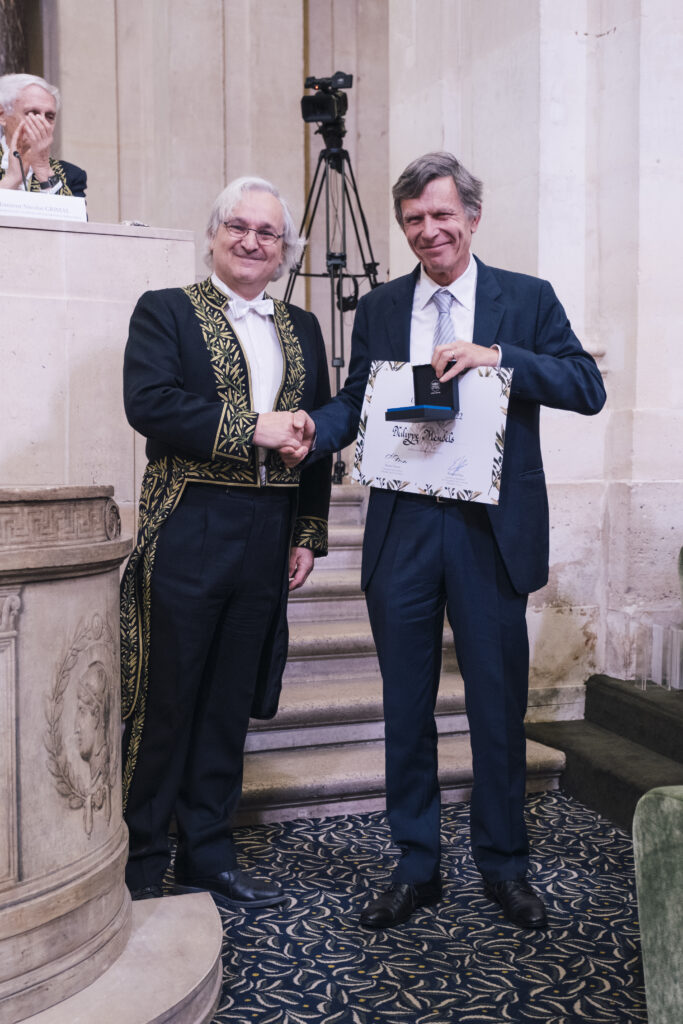Philippe Mendels is the Grand Prix Scientifique Laureate for 2022 of the Charles Defforey Foundation – Institut de France for his leadership of the SQM team that led to the discovery and understanding of exotic emerging properties of quantum materials – properties that have generated new concepts in condensed matter. The prize was awarded on June 1, 2022 under the dome of the Institut de France.
Philippe Mendels’ scientific career has been focused on the discovery and understanding of exotic properties of quantum materials, all the while generating new concepts in condensed matter. His team possesses a range of experimental skills centred around local probe techniques, nuclear magnetic resonance and spin resonance of implanted muons, as well as techniques probing collective electronic and magnetic properties, angle-resolved photoemission and neutron scattering. The resulting sophisticated measurements have revealed detailed information regarding the strong correlations between electrons in new quantum materials, and which have contributed significantly to major discoveries in condensed matter physics over the last thirty years. Early on he participated in the discovery of the pseudogap phase by Henri Alloul, one of the key features in the widely accepted phase diagram appropriate to high critical temperature superconductivity, discovered in quasi-two dimensional copper oxide materials in 1986.

Since the end of the 1990s, along with Fabrice Bert, Philippe Mendels carried out experimental studies on the magnetic frustration of spin lattices with a quasi-two dimensional kagome geometry. This geometrical frustration generates a new quantum state without conventional long-range order, known as a spin liquid, and one which possesses exotic elementary excitations. Using muon spin resonance techniques, His team has provided compelling evidence for the existence of such a state in the S=1/2 herbertsmithite kagome compound that has become emblematic of this physics. Local spectroscopies have allowed the team to isolate and elucidate key elements necessary for the understanding of this topical and still unsolved problem in condensed matter physics, including the behavior of the magnetic susceptibility of the kagome lattice at very low temperatures, the demonstration of the absence of an energy gap in the spin excitation spectrum, and the response of such systems to defects in a “perturbation to reveal” strategy.
In the context of a field of study where small perturbations to the canonical Heisenberg Hamiltonian can fundamentally modify such a spin liquid state, his team continues relevant experimental studies, benefiting all the while from the synthesis of new materials and from theoretical progress. New directions of research are actively being explored, including the doping in these insulating spin liquids which, within Anderson’s conjectured resonanting valence bond state, could generate exotic superconductivity. The Mendels team is also studying the physics of quantum spin ices studied with neutron scattering, by Edwin Kermarrec, and the opological properties of metallic compounds with kagome geometries, as studied by Véronique Brouet, a recognized specialist in ARPES spectroscopy in correlated materials.
Reference
Award ceremony of the Grands Prix des Fondations de l’Institut de France (in French)
